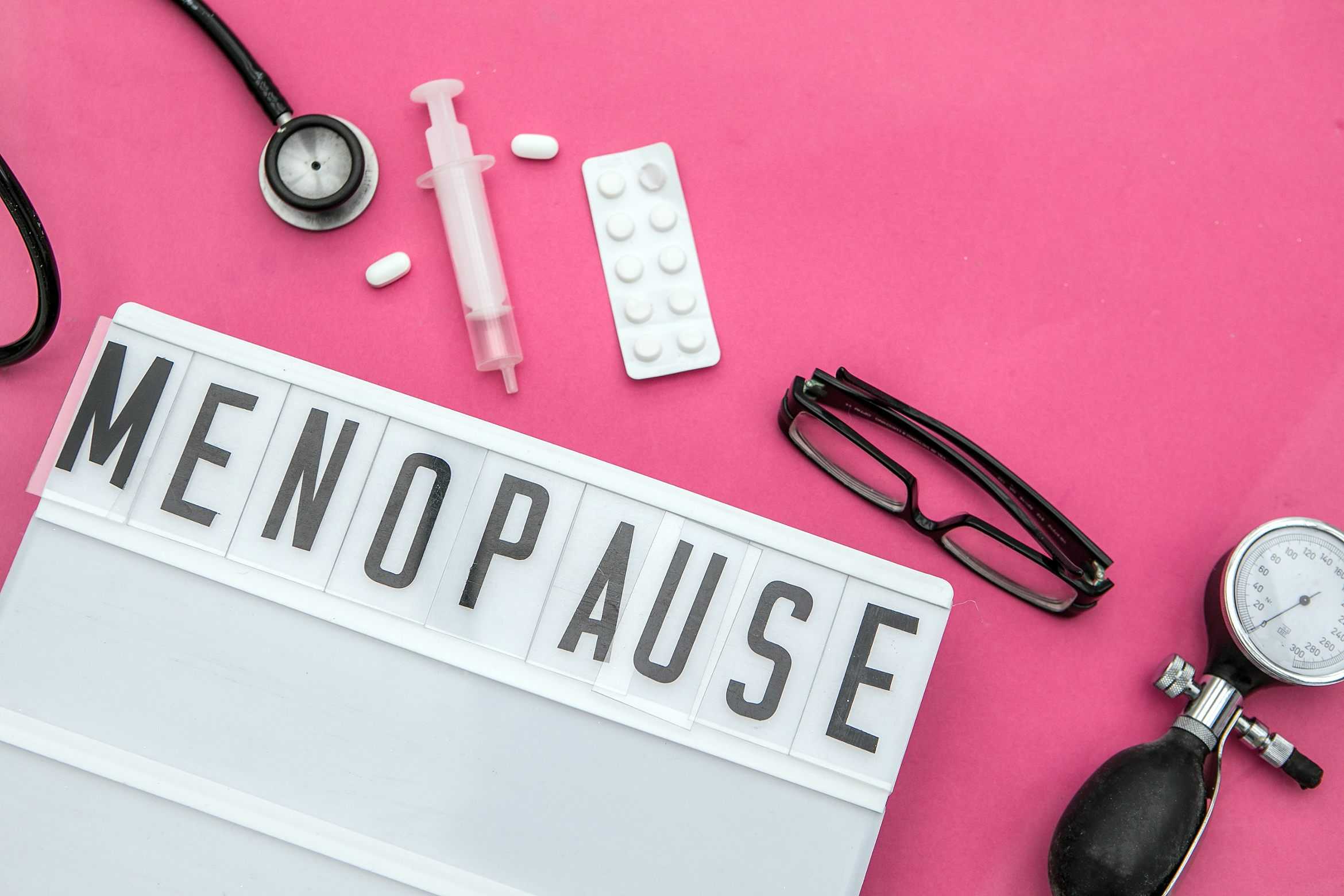Menopause is the time in a woman ‘s life when menstrual periods have stopped permanently . The average age of menopause is 51 years but some women have their first period at an earlier or later age .
Researchers disagree on what causes menopause . Most agree that there are two main things that cause menopause : one is the decrease in hormones during this stage of life , and the other being exposure to radiation or certain chemicals . If you have had your uterus removed through surgery ( a hysterectomy ) then you will not go through menopause because you no longer produce eggs ( ovulate ).
Menopause can be defined as occurring 12 months after your last menstrual period ; however , it could also be said that menopause occurs after a woman stops having any vaginal bleeding for 12 months .
In the past, a common diet for menopausal women was to eat little or no fat, salt, and sweets and stick to a healthy protein and carb diet. However, this diet is no longer recommended, and many women have started eating healthier. One of the healthy choices you can try is the Mediterranean diet. A Mediterranean diet is a traditional diet that is rich in fiber and foods that are high in monounsaturated fatty acids (MUFAs). Foods in the Mediterranean diet include olive oil, nuts, fruits, vegetables and fish.
The diet has been shown to reduce the risk of heart disease, strokes and Type 2 diabetes.
People who follow a Mediterranean diet have lower rates of heart attacks and stroke than those who don’t follow such diets. There is also some evidence that people who eat a Mediterranean-style diet may live longer than those who do not. Moreover, the Mediterranean diet is healthy for weight loss as well as for reducing high cholesterol and hypertension. These benefits can help menopausal women lead healthier lives at this stage in their life and be more comfortable with symptoms like hot flashes and night sweats.
The following ten foods should make up an important part of your daily meals:
Olive oil: Olive oil contains MUFAs which are proven to be healthy for your body. Unfortunately, most women are aware of the health benefits of olive oil but rarely use it in their daily meals. Olive oil is used when cooking or even when preparing salads, so incorporating it into your diet isn’t difficult.
Nuts: Just like olive oil, nuts also have MUFAs that offer numerous health benefits. Almonds are rich in monounsaturated fats and low in saturated fats which makes them an ideal food to add to your dinner plate. They’re also easy to incorporate into your meals- you can sprinkle them on salads or mix them with other ingredients in dishes such as casseroles.
Fruits and vegetables: Women who eat a Mediterranean diet consume more fruits and vegetables than those who eat the standard American diet. The fiber that’s found in fruits and vegetables is good for your digestive system. Dark-colored produce, such as berries, grapes, apples and pears are rich sources of antioxidants which protect against heart disease, cancer and other diseases.
Fish: Fish is one of the mainstays of a Mediterranean diet because it’s rich in omega-3 fatty acids that have been proven to reduce the risk of heart attack by 50 percent . Omega-3s are also known to alleviate pain caused by arthritis or migraine headaches. Moreover, eating fish regularly lowers blood pressure levels due to its high amount of potassium. Try having salmon instead of red meat at least twice a week—it rich in omega-3s and low in saturated fats.
Yogurt: Studies have shown that people who eat three servings of yogurt per week are at a lower risk for heart disease and high blood pressure, while the calcium found in yogurt can reduce hot flashes . It’s also full of probiotics that help your digestive system function properly.
Whole grains: Women should replace white bread with whole grain breads because they’re better for you. Whole-grain bread is rich in magnesium which can be beneficial to women between 40 and 60 years old : it helps relax the muscles so you won’t experience cramps or restless leg syndrome. Fiber-packed whole grains are also good for your cardiovascular health.
Fish oil supplements: Omega-3 acids are important for healthy aging, especially in postmenopausal women who are at a higher risk of heart disease. Fish oil supplements may provide additional benefits for your heart and cholesterol levels.
Green tea: A research study has shown that people who drink four cups of green tea per day have a lower risk of developing Type 2 Diabetes—a common condition in menopausal women . Moreover, drinking caffeine-rich beverages, such as coffee and black tea, prevents gallstones from forming by stimulating bile production in the liver.
Alcohol: Drinking alcohol can help you relax, but you shouldn’t overdo it because too much alcohol leads to high blood pressure or liver cirrhosis which can increase your risk of cardiovascular disease . In general, one serving of alcoholic beverage per day is safe for women.
As you can see, there are many foods you can add to your daily diet in order to get more monounsaturated fatty acids and MUFAs into your body! You don’t have to restrict yourself or anything—just make some healthier choices when it comes to food preparation and overall lifestyle change!
References:
http://www.mediterraneandietbenefits.com/the-foods-of-the-mediterranean-diet
http://www.shape.com/healthy-eating/healthy-drinks/10-best-lowfat-mixed-nuts#1
https://www.medicalnewstoday.com/articles/259343.php
http://greatist.com/health/best-probiotics#ixzz3hUvpSVIj
https://draxe.com/7-reasons-drink-green-tea/#gref
https://ods.od.nih.gov/factsheets/Omega3FattyAcidsConsumer
http://www.health.com/health/gallery/0,,20429355_4,00.html
http://www.mediterraneandiet101.com/#axzz3z2kT5aGm
https://ods.od.nih.gov/factsheets/VitaminB12-HealthProfessional
